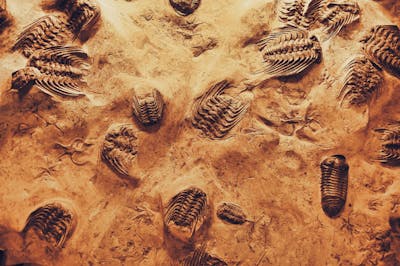
Part 1: The Clash of Theories – Evolution vs. Creationism
The origin of life and the diversity of living things have captivated humanity for millennia. Today, the scientific explanation rests on the theory of evolution by natural selection, proposed by Charles Darwin in the 19th century. However, this theory faces opposition from creationist beliefs, sparking a heated debate that continues to this day, particularly in educational settings.
Evolution: A Theory Well-Supported:
Evolution by natural selection proposes that all living things share a common ancestor and have gradually changed over vast amounts of time. This change is driven by:
- Variation: Individuals within a population possess slight variations in their traits.
- Heritability: These variations can be passed down to offspring through genetic inheritance.
- Differential Reproduction: Individuals with traits better suited to their environment are more likely to survive and reproduce, passing on those advantageous traits to future generations.
Over time, this process leads to the gradual evolution of populations, adapting to their environment and giving rise to new species. Evidence for evolution comes from various fields:
- Fossil Record: Fossils document the history of life on Earth, showing the gradual change of species over time.
- Comparative Anatomy: Similarities in body structures across different species point to a common ancestry.
- Embryology: Early stages of development in some species resemble those of other seemingly unrelated species, hinting at shared origins.
- Genetics: DNA analysis reveals the genetic relationships between different organisms, confirming their evolutionary history.
Creationism: Diverse Beliefs with a Common Thread:
Creationism encompasses a broad range of beliefs that hold that life was created by a divine being, often according to the literal interpretation of religious texts. These various forms of creationism share some core ideas:
- Supernatural Intervention: Life originates through the direct action of a deity, not through natural processes.
- Recent Creation: The Earth and all living organisms are relatively young, typically measured in thousands of years.
- Rejection of Evolution: The theory of evolution by natural selection is considered inaccurate or entirely false.
The Battleground: Science Education and Beyond
The clash between evolution and creationism intensifies in the context of science education. Creationists often advocate for teaching creationism alongside evolution, or even as an alternative explanation. This has led to legal battles and ongoing debates about what constitutes proper scientific instruction.
Part 2: Beyond the Debate – Examining the Issues
The evolution vs. creationism debate extends beyond the scientific realm, raising philosophical and social questions:
- The Role of Science and Religion: Can science and religion coexist, or are they inherently at odds?
- Interpretation of Religious Texts: How should religious texts be understood in light of scientific discoveries?
- Science Education and Critical Thinking: What is the role of science education in fostering critical thinking and understanding the natural world?
- Freedom of Speech and Religion: Does promoting creationism in public schools violate the separation of church and state?
Seeking Common Ground and Mutual Respect
While significant differences remain, some scientists and theologians seek common ground. They acknowledge the separate domains of science and religion, with science addressing the “how” of life’s origin and diversity, and religion focusing on the “why” and the question of ultimate purpose.
Open communication and mutual respect are crucial for a productive dialogue. Science education should focus on presenting the theory of evolution accurately and supported by evidence, while acknowledging the existence of alternative beliefs. Creationism, on the other hand, should not be presented as a scientific theory but rather as a faith-based belief.
Part 3: Moving Forward – Fostering Scientific Understanding and Critical Thinking
The debate over evolution vs. creationism is likely to continue. However, the focus should shift from a polarized clash to promoting scientific literacy and critical thinking skills. Here’s what could move us forward:
- Strengthening Science Education: Robust science education that effectively communicates the theory of evolution and its supporting evidence is vital.
- Encouraging Critical Thinking: Students should be encouraged to question, analyze evidence, and develop their own understanding of scientific concepts.
- Respecting Diversity of Beliefs: While promoting scientific understanding, it’s equally important to respect the right to hold personal beliefs.
- Open Communication: Fostering open dialogue between scientists, religious leaders, and the public can bridge the knowledge gap and create a more informed citizenry.
Ultimately, fostering scientific literacy and critical thinking skills equips individuals to navigate complex issues like the origin of life, regardless of their personal beliefs.
